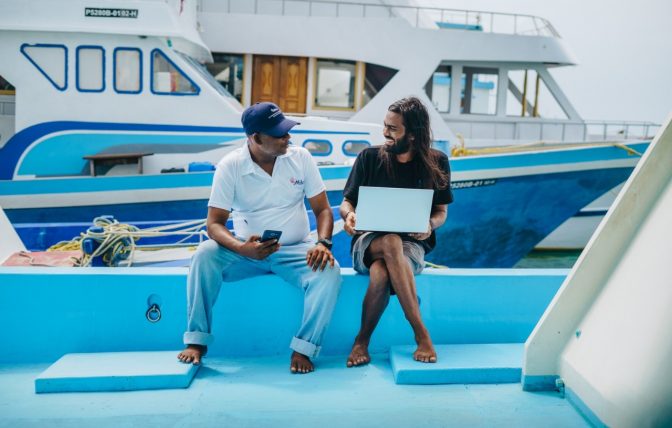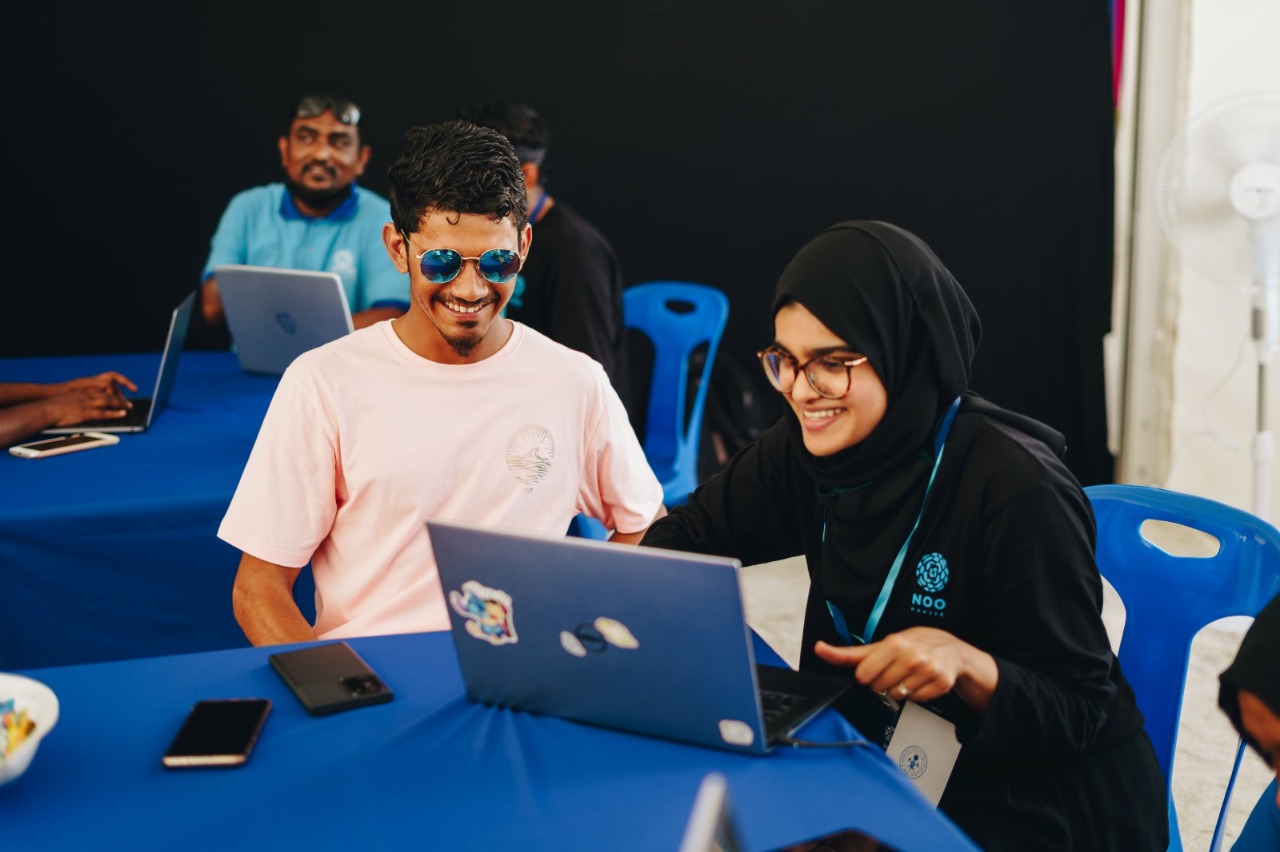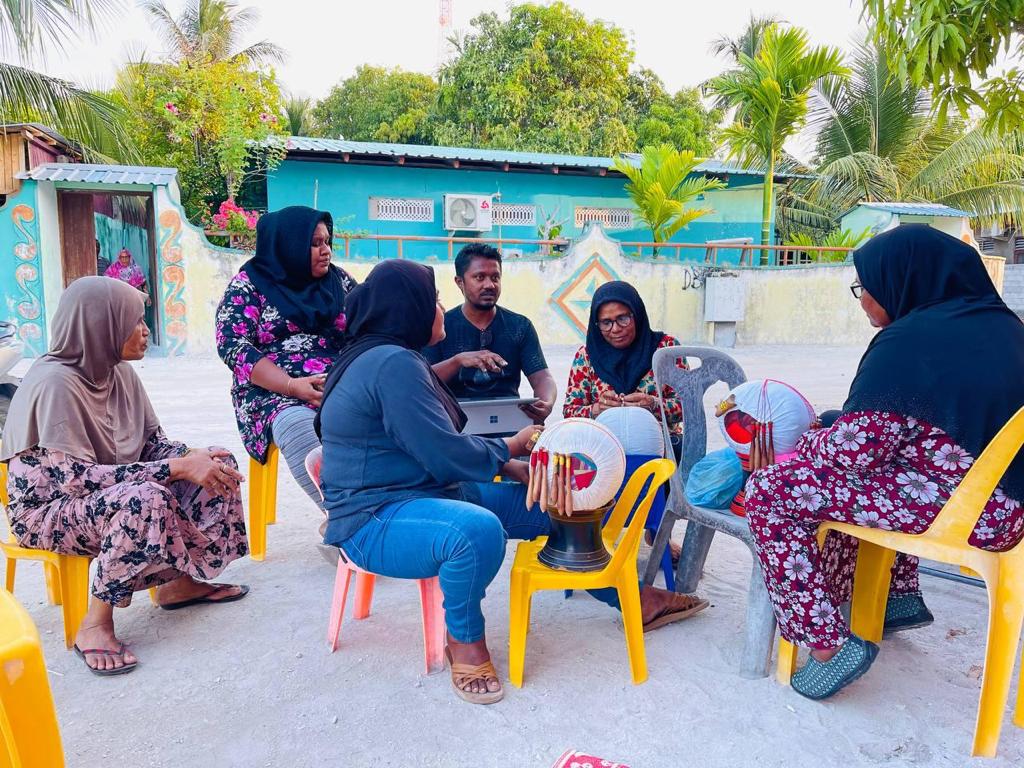

Noo Raajje’s ambitious Ocean Use Survey has reached its halfway milestone, with nearly 1,900 responses, representing 7,500 ocean users from 16 atolls across the Maldives. Since the launch, the survey has been met with enthusiasm from Maldivians. The impressive participation from community members has made this survey the largest Ocean Use Survey to date. The survey examines how local waters are used by fisherfolk, local communities, individuals, the tourism sector, and others.

Over the past three months, 18 Noo Raajje facilitators have been talking to communities across the nation to ensure widespread representation across all 16 ocean use sectors identified for the survey. With 71% of Maldivians relying on the ocean as their primary source of income, a successful Maldivian economy, led by fisheries and tourism, is dependent on healthy and vibrant ocean ecosystems.
The Ocean Use Survey is part of Noo Raajje’s science-based, community-driven Marine Spatial Planning process that seeks to strengthen the government’s blue economy initiatives by promoting sustainable fisheries practices and tourism activities. The results of the survey will also be used to help identify conservation areas to reach the administration’s target of preserving at least 20% of the Maldivian ocean and its resources، to ensure sustainable development and advancement of blue economy strategy initiatives in the Maldives.

Noo Raajje is still seeking additional input on how the oceans are utilized by stakeholders around the country in order to ensure widespread representation. The team of facilitators will continue traveling throughout the Maldives in order to reach each inhabited island.
Interested participants who want to influence the future of the nation’s ocean can also schedule time with a facilitator or complete the survey independently. Visit www.nooraajje.org/oceanusesurvey to learn more.
Noo Raajje is a program led by the Government of the Maldives, including the President’s Office and the Ministry of Fisheries, Marine Resources and Agriculture, and in partnership with government agencies including the Ministry of Environment, Climate Change and Technology, the Ministry of National Planning, Housing and Infrastructure, the Ministry of Economic Development, the Ministry of Tourism, the Environmental Protection Agency, and the Maldives Marine Research Institute, and others. International support comes from the Blue Prosperity Coalition, including the Waitt Institute, National Geographic Pristine Seas, Scripps Institution of Oceanography, SeaSketch, Environmental Markets Solutions Lab at UC Santa Barbara, UCLA Institute of the Environment and Sustainability, and others.
.